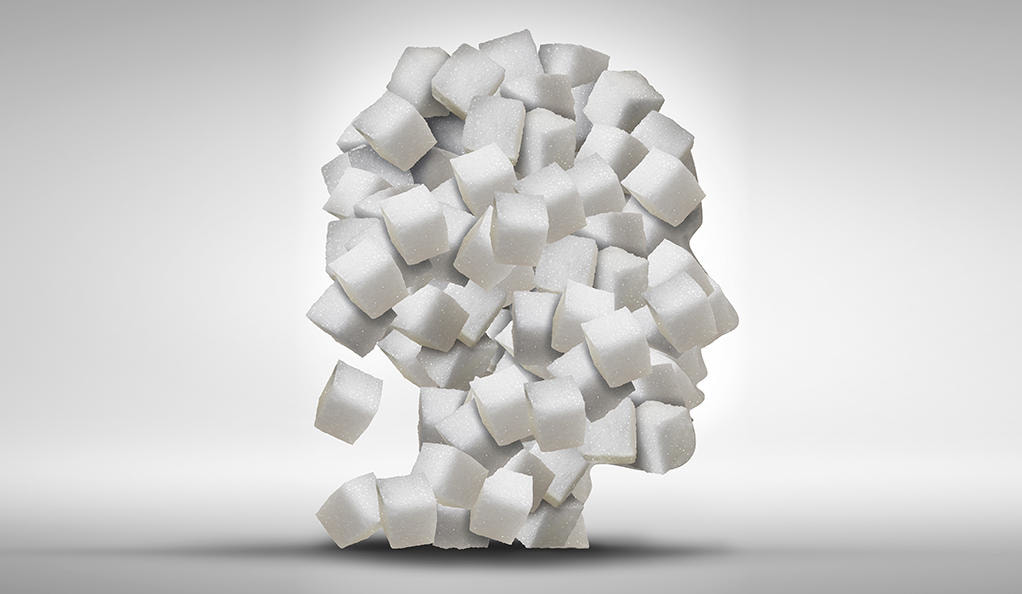|
Have you been forgetting things lately? You forgot where you parked your car the evening you went clubbing with friends, or that Sunday family picnic trip got delayed because you couldn’t find your keys, or the days you travelled overseas on work and you forgot to take your phone charger along, or perhaps that exciting day of the week watching soccer finals with your friends and you had to order in some grub but you couldn’t recall where you placed your wallet! The worse wasn’t over; at a family reunion you couldn’t recognize your aunt who used to feed you with the best parathas and took you for city fairs!Now, do you recall what you had feasted upon on all the above-mentioned days? Definitely NO. Well, then your answer to the first question lies in that of the second. You certainly are having difficulties with the memory centre of your brain. And more than certainly, all the years of feasting has casted its spell on your hippocampus! Although these events of short term memory loss happen more often than we know with almost all of us at some point of time, they can be warning signs of an impending crisis; a pathological crisis which can lead to an irreversible damage to our cognitive functions. Memory loss and dementia are the hallmarks of the most common neurodegenerative disorder, Alzheimer’s disease. Although this disorder afflicts older adults, the symptoms and manifestations can be visible earlier in life too- the frequency and intensity of which may vary between individuals depending on factors like genetic disposition, lifestyle and presence of metabolic disorders. While truckload of research and inference has gone into the genetics and therapeutic aspects of it, very few are aware of a crucial link it has with another very critical facet of or diet, the sinful sugars. Memories... Tangled and Piled The brain functions primarily in 2 ways: one, using almost 25% of the blood supply of our body to obtain nutrients, and two, ensuring smooth neurotransmission across neurons to control all body functions. Any disruption in either of these can lead to serious brain dysfunctions. Unfortunately Alzheimer’s disease influences both these aspects. The role of amyloid beta protein has not been elucidated during normal functioning but in Alzheimer’s disease, it builds up into lumps or aggregates right at the synaptic junction between nerve cells and hampers effective neurotransmission. At the same time, another protein Tau which is otherwise responsible helping the framework of neurons stay organized to transport nutrients into the cells, undergoes phosphorylation and collapses into tangles or twisted strands. This causes the neuronal framework to collapse and start degenerating or disintegrating, thereby preventing any further entry of nutrients and essential supplies into the cell which eventually dies. For this reason, Alzheimer’s is called a neurodegenerative disorder. This brings us back to elucidating how diet can modulate neurodegeneration. Excessive sugar intake in our diet causes a large part of it to travel to the brain. Glucose is extremely essential for the brain towards various functions, but when there is more than what’s required, it turns catastrophic! Glucose causes damage proteins via a chemical reaction called ‘glycation’ that produces substances called Advanced Glycation End products (AGEs). These AGEs further modify amyloid beta proteins to form aggregates at the neuronal junctions. Simultaneously, AGEs through a complex signaling cascade cause phosphorylation of tau protein, which get restructured into tangles resulting in subsequent neurodegeneration. On the backend, a pivotal enzyme MIF is actively involved with our immune response to any possible accumulation of abnormally modified proteins. But in scenarios of excessive unwanted sugar intake, glucose yet again through glycation, modifies and inhibits the protective function of MIF. So, basically not only does it cause the damage but also constrains the protective mechanisms! The magnitude of casualty sugar can cause in the brain is inapprehensible. And for this very reason, diabetics are considered to be at higher risk of developing Alzheimer’s disease. Sugars, especially refined and simple ones like baked flour goodies, few cereals, sweets, aerated drinks and sweetened beverages should be totally avoided for metabolic as well as neurological wellness.
Sadly, there is no cure for Alzheimer’s disease. It is a disease of the aging and can be excruciatingly debilitating for the patients. There is no prophylaxis for it either, except a few minor lifestyle changes that can be incorporated to slow down the process. Cutting out those nasty sugars from our diet and following a balanced meal system with limited complex carbs and loads of fruits, vegetables and lean meat, is the best nunchaku for avoiding early onset of Alzheimer’s till ofcourse, genetics uses its chainsaw! If not prevent, a mind-ful diet can ameliorate manifestations of Alzheimer’s disease to a great extent. Comments are closed.
|
AuthorDietitian & Nutritionist Dr. Nafeesa Imteyaz. Archives
May 2020
Categories |
- Home
- Written Testimonials
- Consult
- Clinics
- Blogs
-
Diet & Nutrition
- Diabetes Reversal
- IVF IUI not needed for PCOS PCOD Infertility
-
Medical Nutrition
>
-
Disease & Conditions
>
- Infertility | PCOS
- Diabetes Mellitus
- Cholesterol
- Hypothyroid
- Kidney Problems
- Hypertension
- Cardiovascular Diseases
- Liver Diseases
- Gastro intestinal disorder
- Cancer
- Metabolic Disorders
- Orthopedic Disorders
- Eating Disorders
- Dietary Recall
- Weight Record Filled By Clients
- Online Payment Transaction Details
- Online Clients Weight Check Form
- Our Program Package Service Charges
- Weight Record 2017 Clients
- Measurements sent by Clients
- Terms & Conditions Of Payment
- Thanks. Your Form is Submitted
- Video Testimonials
- Lifestyle & Wellness
- Lifestyle & Wellness Blog
- Allergy & Intolerance
- Weight Loss / Gain
- Weight Loss / Slimming Blog
-
Disease & Conditions
>
- Life Cycle Nutrition >
- Sports Nutrition >
- Integrity in Nutrition
- Knowledge Centre
© COPYRIGHT 2022. ALL RIGHTS RESERVED. FRST HEALTHCARE PVT LTD.
Dr. Nafeesa Imteyaz of First Eat Right clinic, is the Best Dietitian Nutritionist in Bangalore. Best Dietitian Nutritionist in Pune. Best Dietitian Nutritionist in Hyderabad. Best Dietitian Nutritionist in Chennai. Best Dietitian Nutritionist in Mumbai. Best Dietitian Nutritionist in Delhi. Best Dietitian Nutritionist in Kolkata.


